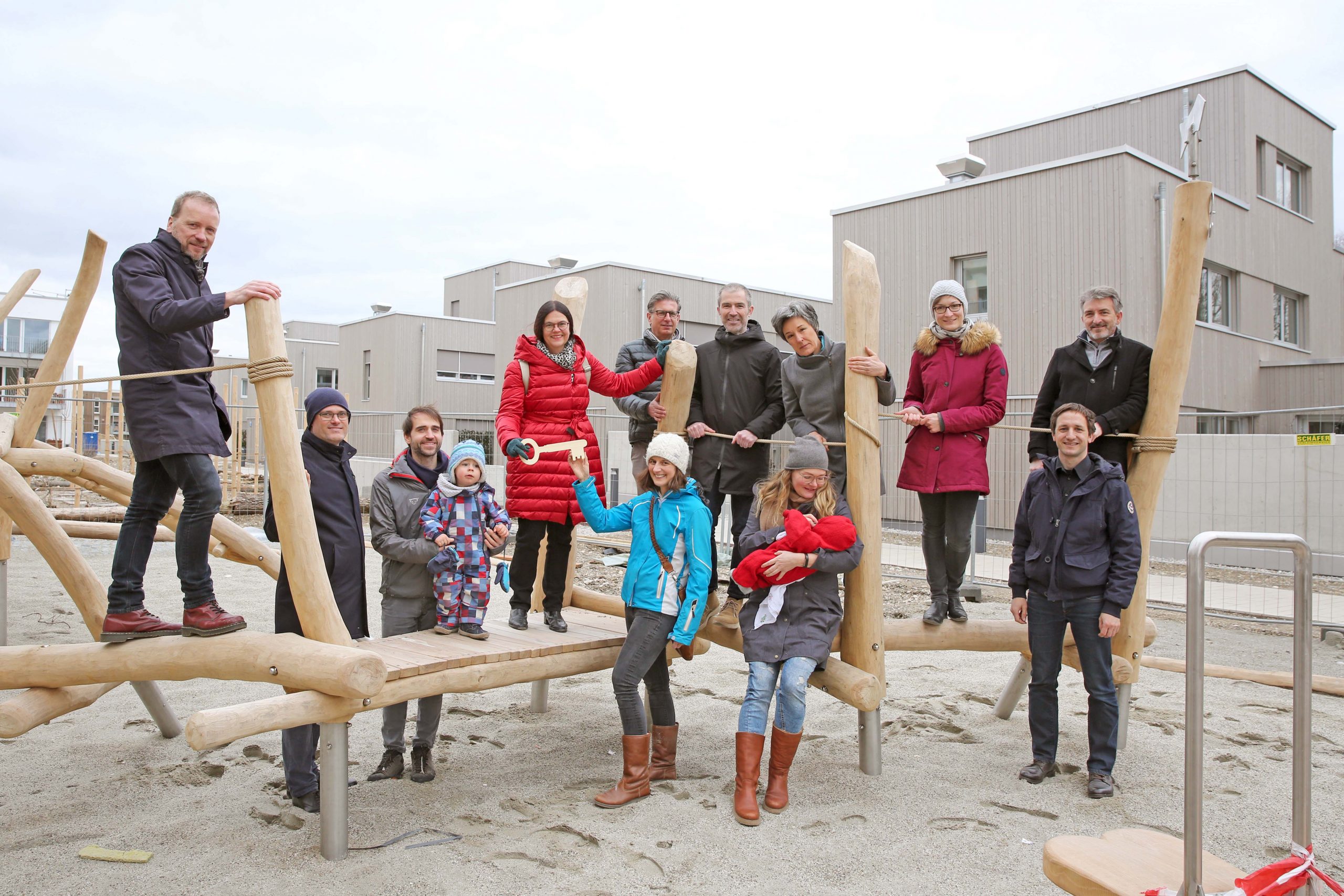You may also like
That sand is the rock of the year has probably not noticed very many. Why that is so, about it reports the contribution "Sand - the underestimated raw material" (28 min.) from 11.9.2016 on ZDF. Because experts warn: Our little-known sand hunger could become a global sand crisis in the future.
Because:
- Worldwide, 15 billion tons of the granules are consumed annually - and the trend is rising.
- Every German uses an average of 2.9 tons of sand per year. About 80 percent of this is used in houses, roads and bridges.
- 200 tons of sand stuck in a family home
- 30,000 tons of sand stuck in one kilometer of six-lane highway
Building material recycling of sand or mineral building materials is possible, but in practice it is mainly downcycling. For this reason, the substitution of mineral building materials with renewable building materials is favoured in concepts for ecological buildings. Numerous settlements and quarters show what this can look like in concrete terms:
www.holzbau.siedlungen.eu.
Keywords:
Movies, Movies 11 to 45 Min, Resource efficiency, Environmental policy
1:04 min 12/22/2016
2:46 from 08.04.2015
Project Info: http://sdg21.eu/db/gruene-zitadelle-in-magdeburg
Show building projects by Hundertwasser: http://sdg21.eu/friedensreich-hundertwasser
Keywords:
DE-News, Movies, Movies < 4 Min, News Blog Saxony-Anhalt

5.3.2020 Munich: City Planning Councillor Professor Dr. (l) Elisabeth Merk has now symbolically handed over the key to the members of the building association "Der Kleine Prinz" in Prinz Eugen Park. Their new building ensemble of atrium and point houses on Jörg-Hube-Straße is part of the ecological model settlement there. In addition to flats, two guest flats, an ice cream café and a bicycle repair workshop were built.
"The ecological model housing estate is a kind of initial spark for further timber construction projects in the city, and with the 'Kleiner Prinzen' project, an outstanding showcase project for high-quality timber construction has been created - beyond the city's borders. This is due not least to the great commitment of all those involved and the successful cooperation as and with the building consortium," Merk emphasised at the handover of the keys, which was attended not only by the members of the building consortium but also by the architects involved from the architectural firm Dressler Mayerhofer Rössler.
Around 1,800 flats as well as a primary school, kindergartens and other facilities are being built in the new Prinz-Eugen-Park urban quarter. Among the developers are a total of six cooperatives and five joint building ventures. The ecological model settlement is made up of eight individual projects. Approximately 570 flats are being built here in timber construction, 407 of which are rental flats, and various community facilities.
Further information on the ecological model settlement in Prinz-Eugen-Park is available at:
http://sdg21.eu/db/oekologische-siedlung-im-prinz-eugen-park
Source: PM of the City of Munich from 5.3.2020
Keywords:
Wood construction, Communities, News Blog Bavaria
- Energiedienst receives production approval for hydrogen from green electricity
- Domestic industry will be the first customer

Grenzach-Wyhlen, December 5, 2019. Hydrogen production in Grenzach-Wyhlen in Baden-Württemberg (not far from Basel) can start. Energiedienst today received approval for the operation of the power-to-gas plant. All technical verifications and official clarifications have now been fulfilled.
In the state-of-the-art plant, Energiedienst produces hydrogen from self-generated green electricity using electrolysis. The electricity comes from the company's own hydroelectric power plant on the same site. The environmentally friendly hydrogen will initially be used in nearby industry. It is also planned to use it in local public transport. A comprehensive concept also envisages that the waste heat generated during electrolysis will be used to heat a new residential area. By linking electricity, mobility and heat supply in this way - keyword: sector coupling - the plant should help to reduce CO2 emissions and support the energy transition.
A year ago, Energiedienst officially inaugurated the power-to-gas plant together with the State Minister of Economics, Nicole Hoffmeister-Kraut (CDU).
The plant has an output of one megawatt. In addition, there is 0.3 megawatts from an affiliated research facility of the ZSW (Centre for Solar Energy and Hydrogen Research). The state of Baden-Württemberg has funded this as part of a lighthouse project.
At the end of October, Energiedienst also submitted a concept for hydrogen for consideration in the "Reallabore der Energiewende" ideas competition run by the German Federal Ministry of Economics. The Federal Government attaches a key role to hydrogen, especially for the mobility of the future. The funding commitment from Berlin is still pending.
Company information
The Energiedienst Group is a German-Swiss public limited company with a regional and ecological focus. It generates green electricity from hydropower and sells electricity and gas. Its own grid companies supply customers with electricity. Another focus is on intelligently networked products and services for the decentralised renewable and digital energy world of the future, such as photovoltaic systems, heat pumps, electricity storage systems and e-car sharing.
The Energiedienst Group supplies over 270,000 customers with electricity. It employs just under 1,000 people, including around 50 trainees. The group includes Energiedienst Holding AG, Energiedienst AG, ED Netze GmbH, Messerschmid Energiesysteme GmbH, EnAlpin AG in Valais as well as Tritec AG and winsun AG. Energiedienst Holding AG is an associated company of EnBW Energie Baden-Württemberg AG (Karlsruhe).
Keywords:
100% EEs, Fuel cell, DE-News, Energy storage, Renewable, Climate protection, Sustainable management, News Blog Baden-Württemberg, Electricity storage, Ecology



